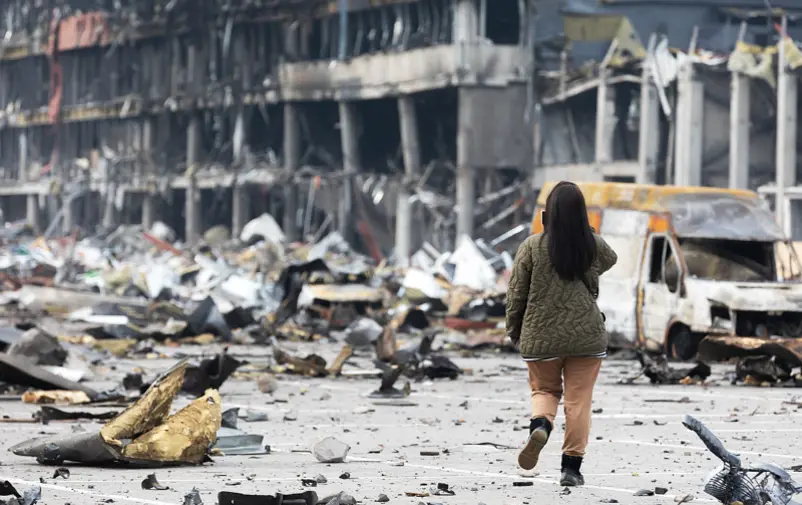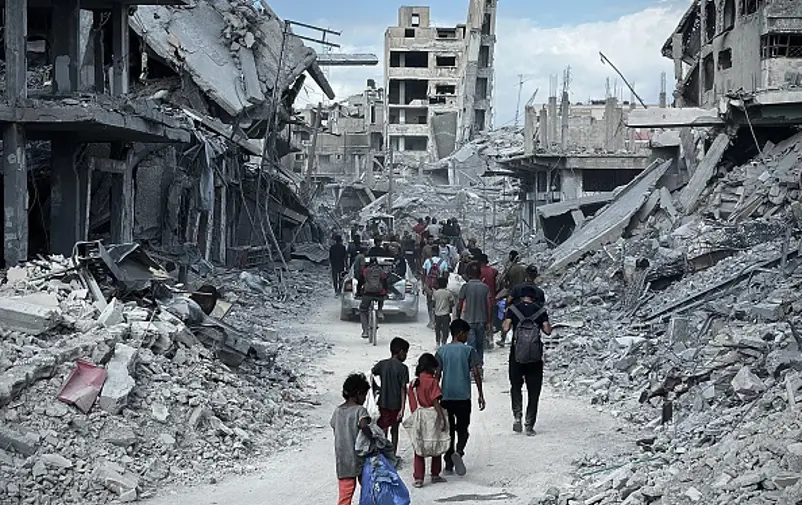Meaningful work – and one’s own vulnerability
"The need to support Ukraine now is more important than the risks, but the anxiety that comes from working in a war situation must be something that we all feel.” With twenty years of experience working internationally to support human rights, Robin Clapp reflects on her current assignment in Ukraine and peace efforts in conflict-ridden countries."Since May of this year, Robin Clapp has been seconded by the FBA as Human Rights Advisor to the European Union Advisory Mission in Ukraine (EUAM). Part of her work involves supporting the Ukrainian Parliament’s counterpart to Sweden’s Ombudsman, including through training. The initial focus of the project is on strengthening the Ombudsman’s capacity to monitor how the state upholds the Istanbul Convention* on violence against women. The Convention was approved by the Ukrainian Parliament in June and entered into force on 1 November.
– The Convention is a watershed for Ukraine, particularly in the current situation, where Russia’s aggression has increased the focus on sexual violence in conflict. There are many credible reports (e.g., from the UN, OSCE and Ukrainian authorities) on the Russian forces’ widespread use of sexual violence. These crimes will be handled under international humanitarian law, human rights legislation and criminal law, and in national courts. At the same time, it is known that domestic violence often increases in the aftermath of conflict, which increases the importance of having a robust international framework for ensuring that the rights of the victim are also respected, protected and addressed even in non-conflict-related violence, says Clapp.
The Convention, which 37 countries have signed, is the most comprehensive international framework for combating all forms of violence against women.
The opportunity to contribute to long-term change
Clapp has also been tasked with supporting the revision of Ukraine’s national strategy and action plan for human rights.
– The strategy can be described as Ukraine’s ‘bible’ in terms of what must be done in the area of human rights over the next few years. Being able to contribute to this work is both of long-term value and important to Ukraine’s EU membership aspirations.
The opportunity to work in structures that drive change is one of the reasons that Clapp describes her assignment as a dream job. Another is the potential to contribute to the EU’s world leading work for human rights and democracy. She also points out the satisfaction in meeting and co-operating with international and Ukrainian colleagues.
– Sometimes I just want to say it straight out: we all know that this war is wrong, and it could have happened to any of us, but words are not always needed. There are moments of contact with local people where we are united by our common humanity, trite as that might sound. It is that precise feeling that continues to drive me forward: the feeling of human connection and solidarity.
One’s own vulnerability in the shadow of efforts for peace and development
After more than twenty years of international work in support of human rights, often in conflict- or post-conflict countries, Clapp can understand why so many people want to serve in international peace efforts.
– The feeling of meaningfulness is central, but this is often balanced with doubts about whether the initiative really makes enough difference. It is so much easier to see the effects in humanitarian work, which directly saves lives. The risk of becoming disillusioned and cynical is palpable in the world in which I work. You need to constantly ask yourself why you are doing the work – is it really for the right reasons?
Among the more complex dimensions of her work, Clapp also counts the worry and anxiety connected with working in a war situation.
– How could you not feel afraid when the drones are whizzing around overhead? The need to support Ukraine in this time is more important than the risks, but the anxiety that comes from working in a war situation is nevertheless there. It feels as though vulnerability is a taboo among ‘mission junkies’ although I have myself been accused of being one as well (!), she admits.
EUAM works actively to recruit more women to its efforts, particularly in leadership positions. A better gender balance can have a positive effect on the question how perceptions of one’s own safety are discussed, reasons Clapp. She is also pleased to note that mental health issues are beginning to get more attention, and that training in ‘mental health first aid’ is an area on the rise.
– It seems to me to be very far away – the day when we can openly and honestly talk about the vulnerability that those of us working in conflict-affected contexts feel – but we are moving in the right direction. It may be a dream, but I see it as something both possible and desirable – that a more empathetic leadership style will gain precedence. It must not be forgotten that vulnerability can be a strength that builds trust. And trust in each other is the key to good teamwork, concludes Clapp.
*The Council of Europe Convention on Preventing and Combating Violence Against Women and Domestic Violence (the Istanbul Convention) is the world’s most comprehensive international agreement on combating violence against women and domestic violence. It describes the obliteration of violence against women as necessary to achieving gender equality and requires states to take extensive measures. The Convention was adopted in 2011 and entered into force in August 2014. Sweden ratified the Convention the same year and all EU member states have signed it.
EUAM Ukraine is a civilian EU effort established in 2014 with headquarters in Kyiv and, prior to the war, field offices in Lviv, Kharkiv, Mariupol and Odessa. The mission has a staff of 350. The overall goal is to help Ukraine reform the police, security services and other authorities in the security sector in order to strengthen Ukraine as a state governed by the rule of law.








 >
> >
>

